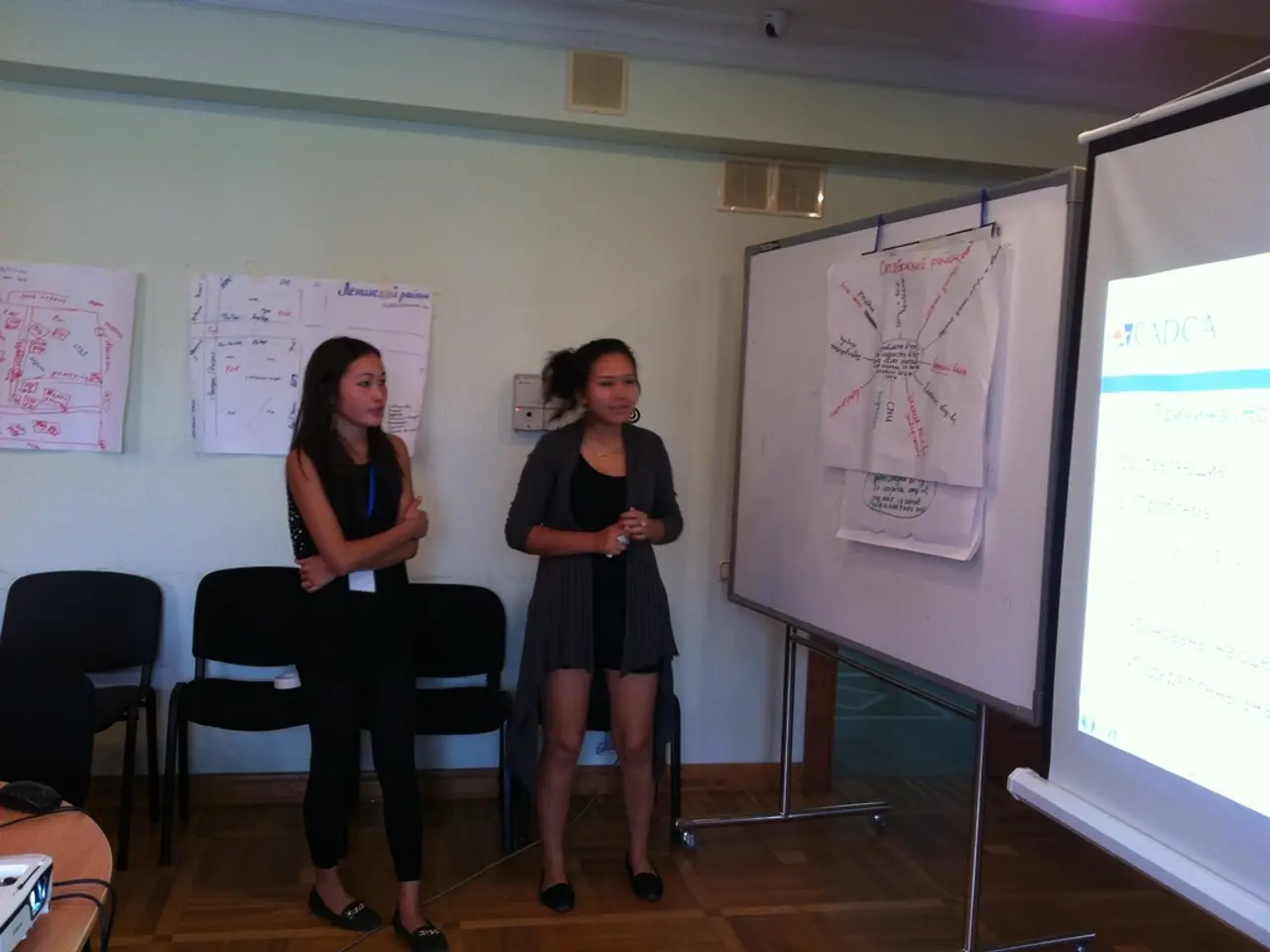Unraveling the Art of Acquiring Knowledge: Tailoring Research to Real-Life Applications
In the world of academia, research is often seen as a complex and daunting task. But for Ellie Breitfeld, Natural Sciences Correspondent, it's a fascinating journey of discovery and personal growth. In her article published in Lab Research, titled "Why Research?", she shares her experiences and insights into the world of research.
Breitfeld's research question was simple yet intriguing: Are stimuli best remembered after multiple short exposures or a single, longer exposure? This question, she explains, was born out of a need to find the most efficient way to study during finals season.
In a cognitive psychology course, she was asked to pick a central concept, identify a question, and design an experiment to test it. She decided to reverse engineer her search for a topic by considering what question she wanted to answer and what was relevant to her at the time.
She designed an experiment using an online platform to test memory of colorful geometric designs. The designs were shown either four times for one second each or one time for four seconds. The results were surprising. For complex stimuli, she found that one long exposure was best, but for simpler stimuli, memory was improved with many shorter exposures.
Breitfeld believes that coming up with a research question that is personally relevant and meaningful is important for making the research process rewarding. She also emphasizes the value of relating course work to personal life by asking the right questions. This, she says, can add value to both.
When it comes to approaching a semester-long open-ended project, Breitfeld suggests starting by brainstorming and listing project ideas related to each subject of interest. She advises submitting multiple ideas early to get peer and instructor feedback, which can help you narrow down or blend your interests into a cohesive project concept.
Organizing the project by breaking it into manageable tasks and setting a personalized schedule is also crucial. Balancing time spent on each subject area is key if you choose to integrate them. Scaffolding techniques, such as multiple check-in dates, can help you revisit and refine your project focus as you progress, ensuring you remain engaged and on track.
Adopting open-ended project formats that allow you to demonstrate knowledge across different content areas and in creative formats you feel most comfortable with is another important aspect. Clear rubrics and expectations will help guide your work, while regular feedback loops will keep your project aligned with learning goals.
Finally, Breitfeld advises remaining flexible by allowing retakes or revisions and using them as opportunities to deepen your knowledge or improve your integration of subjects, while respecting deadlines to manage your time effectively. Writing a project introduction after completing your work can help you synthesize the various components and illustrate how your multifaceted interests contributed to the final outcome.
In conclusion, Breitfeld's journey into research is a testament to the power of personal relevance and curiosity in driving scientific discovery. Her article serves as a guide for students embarking on their own research journeys, offering practical advice and inspiring insights into the world of research.
In her educational and self-development pursuit, Ellie Breitfeld's junior paper, based on memory retention of stimuli, represents independent work related to personal growth, showcasing the value of finding personally relevant research questions and relating course work to real-life scenarios for optimal learning. Additionally, Breitfeld advocates for a flexible and structured approach when undertaking open-ended projects for personal and academic growth.




